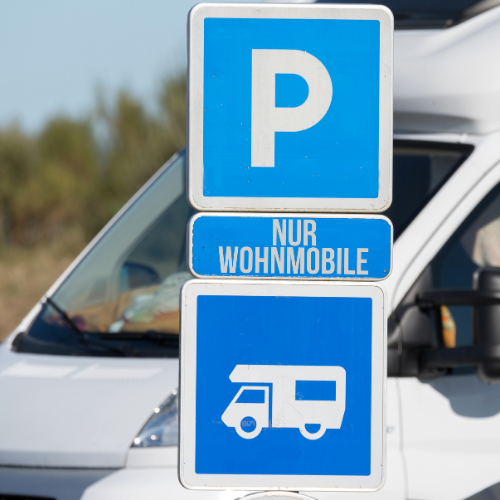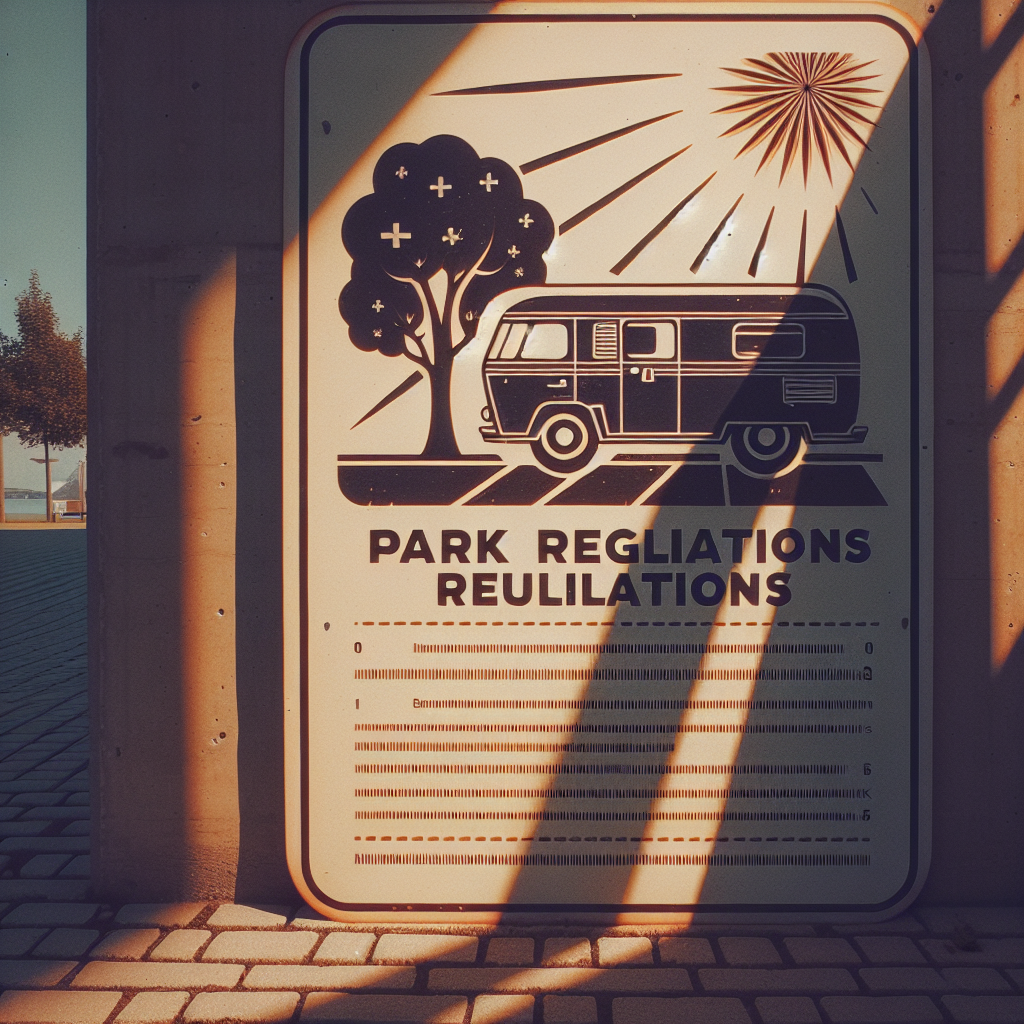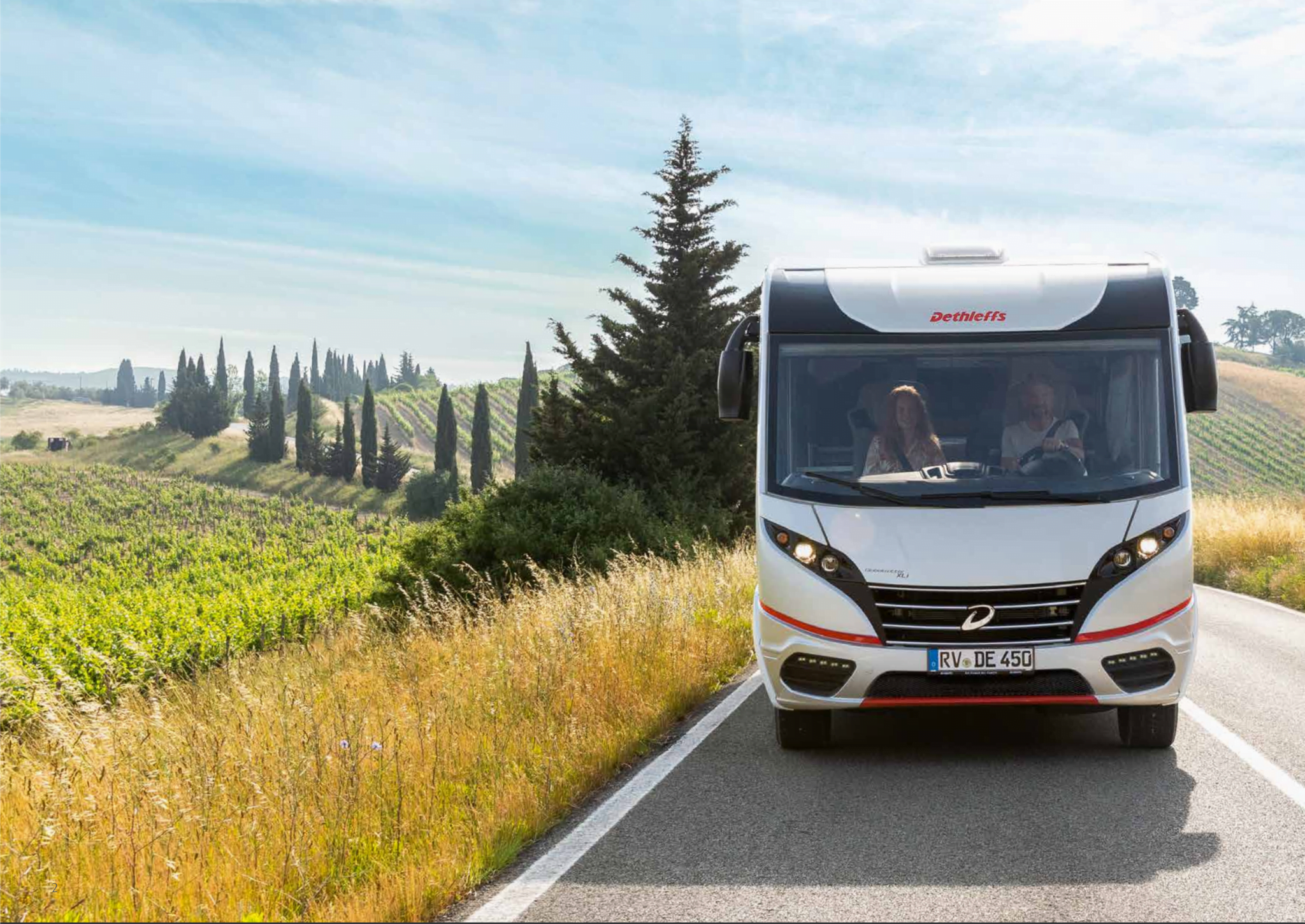If you are passing through or have just returned from vacation and are now wondering where you can best park your motorhome, we will show you here how and where motorhomes can park without any problems.
- First-aid kit the checklist for camping
- Safety first: the right equipment for your caravan or motorhome
Basic parking regulations according to StVO
Let’s first take a look at the road traffic regulations regarding the parking of motorhomes with a gross vehicle weight of less than 7.5 tons.
Here is a factual and SEO-friendly list of parking regulations that should be followed:
- Your vehicle must be registered in order to be parked in a public space.
- Some parking spaces are reserved exclusively for cars and are marked by a white traffic sign with a car on it (VZ 1010-58).
- Your parked motorhome may not cover traffic signs, hydrants, manhole covers or traffic lights, nor may it obstruct other road users.
- You must adhere to the parking space markings in order to park correctly.
- Parking on the sidewalk (on one side only) is only permitted for vehicles under 2.8 tons.
- If you park at the side of the road, there must be at least 2.65 meters of space to the side to allow room for large vehicles such as refuse trucks and ambulances.

How long can I park my motorhome?
As long as you park your motorhome with a permissible gross vehicle weight (GVW) of less than 7.5 tons in accordance with the German Road Traffic Regulations (StVO), you can leave it there for longer periods of time. However, motorhomes should be moved every six months at the latest. Motorhomes weighing over 7.5 tons may not be parked in purely residential areas at night between 10 p.m. and 6 a.m. and on Sundays and public holidays.
Parking for panel vans with motorhome registration
If you have a microcamper or a van with a gross vehicle weight of less than 2.8 tons, you may also use parking spaces that are signposted for cars. However, as soon as your van is registered as an “Other motorhome”, this no longer applies. Parking a motorhome in a car parking lot can result in a fine.
Lighting for your parked motorhome
If you park all or part of your vehicle on the road at night, you must mark it accordingly. In urban areas, street lighting is generally considered sufficient for vehicles with a gross vehicle weight (GVW) of less than 3.5 tons.
For heavier motorhomes, however, mandatory marking is required. Within a built-up area, the use of the parking light is sufficient. Outside built-up areas, it is advisable to use the parking light or additional lighting. Alternatively, the German Road Traffic Regulations (StVO) also permit the use of white and red striped signs, which must be attached to the front and rear of the vehicle.
Parking does not automatically mean staying overnight
In Germany, you are generally not permitted to spend the night in your parked motorhome. The only exception provided for by law is the “restoration of fitness to drive”. This means that if you are too tired to continue driving, you may sleep in your parked motorhome for a maximum of 10 hours. However, you should not display typical camping behavior.
Pay attention to changes in the law
It is extremely important that you keep up to date with the latest changes in legislation and new regulations relating to motorhome parking. These regulations may change over time and have a direct impact on your travel and parking behavior. Here are some reasons why you should keep an eye on these developments:
- Legal compliance: As a motorhome owner, you are obliged to comply with the applicable laws and regulations. This applies not only to parking, but also to other aspects of road traffic. By keeping up to date with changes in the law, you ensure that you are always acting within the legal boundaries.
- Fines and penalties: Violations of parking regulations can lead to fines and penalties. Knowing the current laws will help you avoid such penalties and protect your budget.
- Parking facilities: Changes in the law can also have an impact on the availability of parking spaces for motorhomes. Some places may have special regulations that restrict or allow the parking of motorhomes in certain places. If you are up to date, you can find suitable parking facilities more easily.
- Security: New regulations can also affect security aspects. For example, parking bans can be imposed on certain road sections for reasons of road safety. By knowing about such regulations, you can travel more safely.
- Environmental aspects: Legislative changes may also affect environmental aspects, particularly in nature conservation areas or environmental zones. Compliance with such regulations is important in order to protect the environment and avoid possible penalties.
To stay informed about these developments, we recommend regularly consulting official sources such as the German Road Traffic Regulations (StVO) and the Federal Ministry of Transport. You can also contact motorhome associations or online resources that provide up-to-date information on parking regulations and changes to the law. Paying constant attention to this information will help to ensure that your motorhome trips are safe and legally compliant.
Conclusion
Parking motorhomes in public areas is generally permitted as long as you comply with the German Road Traffic Regulations (StVO). However, due to the size and weight of motorhomes, it can often be difficult to find a suitable parking space. Therefore, take particular care not to endanger or disturb other road users with your parked motorhome.




